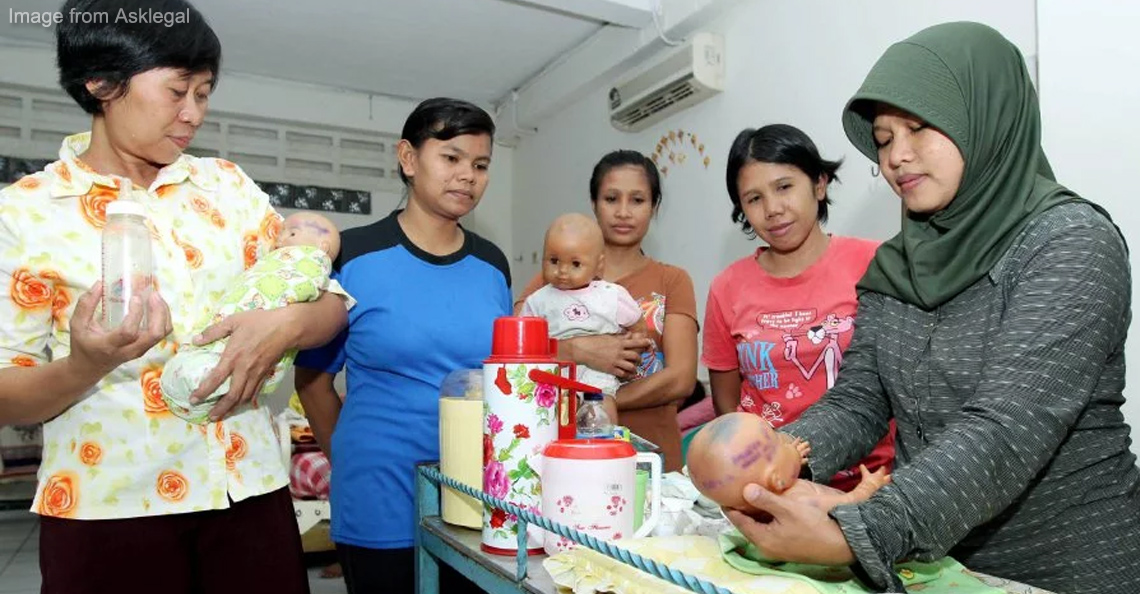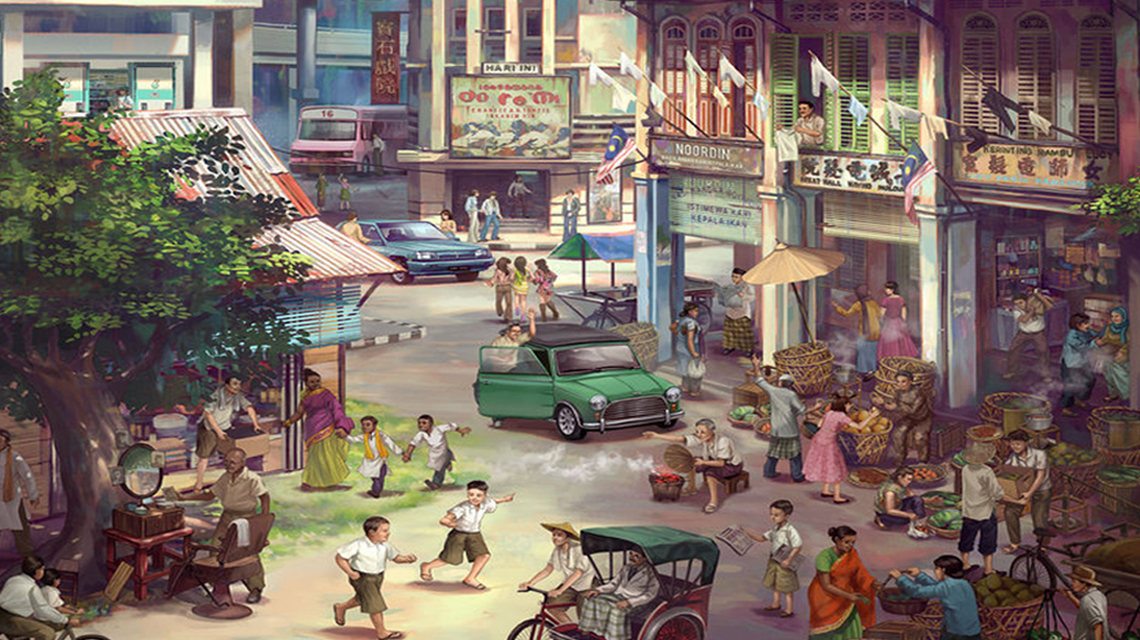5 and a ½ Ways Immigrants Immigrate Into Malaysia
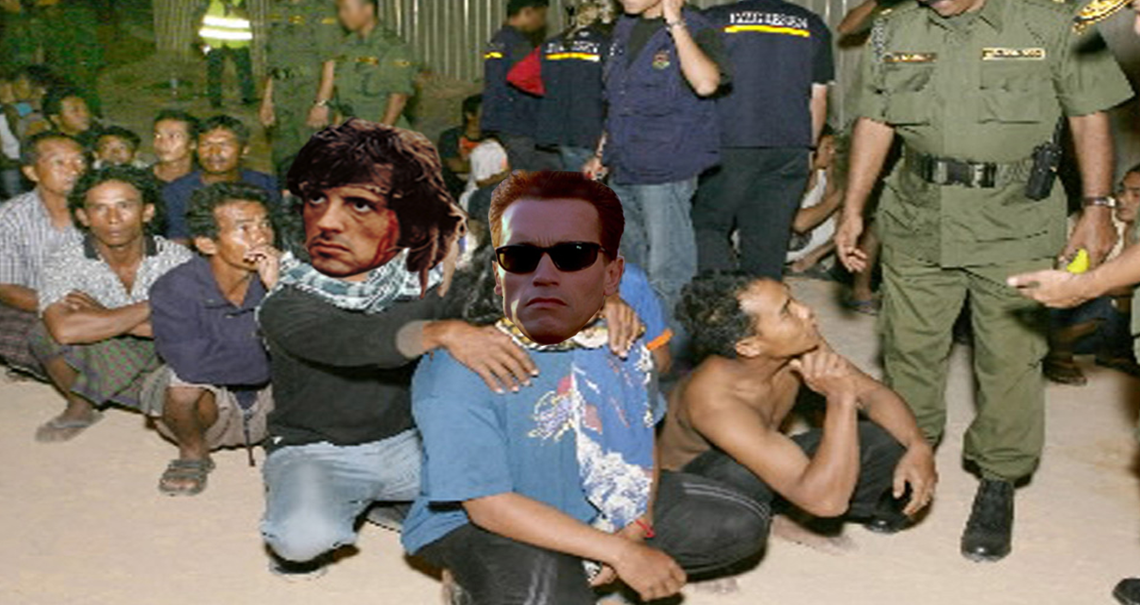
- 331Shares
- Facebook321
- Twitter1
- LinkedIn2
- Email2
- WhatsApp2
Unless you’ve been in a cave watching all 4 seasons of Daenerys Targaryen’s boobies Game of Thrones; you’ll know that Malaysia has a growing population of foreign workforce. It’s hard to tell who’s here legally and who’s not without having to ask them. What makes a foreigner illegal? The Immigration Department of Malaysia has a long list of definitions on their site but we’ll summarise it down to:
Foreigners who are staying in Malaysia beyond the approved period, or do not have approved paper work like visas and permits.
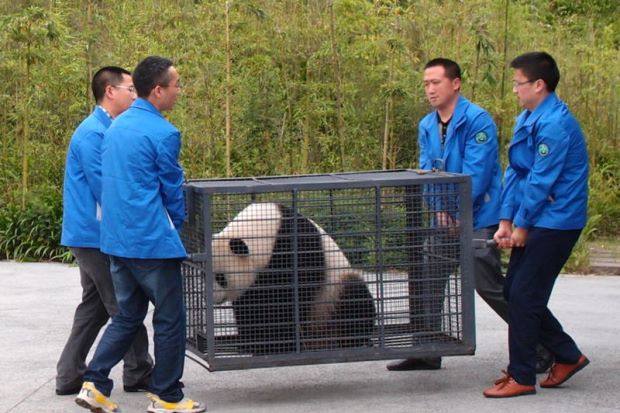
Now, there’s been a lot of negative news about illegal immigrants, from petty crimes to possible involvement of kidnappings in Sabah. On the flipside, there’s also news of how these people are abused by Malaysian authorities and employers. But let’s move back a little… how did we get so many foreign workers in the first place?!
1. Legal and Legit
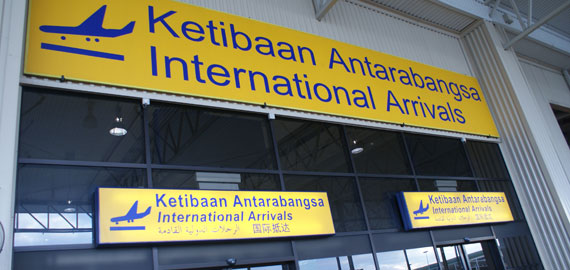
Many immigrants enter the country with valid visas like Transit Visas, Multiple Entry Visas, Single Entry Visas or even White Man Permits (otherwise known as the Professional Visit Pass) as defined by the boys at immigration. The longest one can stay in Malaysia with a visa is 12 months and must be renewed for a longer stay.
Where do they end up?
Once a foreigner comes in, the responsibility is on that individual to renew it. How many times have you forgotten to update your driver’s license, IC, or passport? So this makes it super easy (and sometimes even super unintentional) for someone to ‘go off the grid’ and assimilate into the local populace, doing odd jobs like waiters, cleaners, construction workers and the likes. It’s difficult to say how many foreigners have overstayed their visit but the late Irene Fernandez, director of human rights group Tenaganita estimated that in 2011, there were over 1.5 million undocumented foreigners in the country. That’s more people than the entire population of Bahrain!
Conveniently enough, the Home Ministry does not have a fixed figure due to “faulty databases” claims Chairman of the Public Accounts Committee Datuk Nur Jazlan Mohamed. Home Ministry is probably still using Windows95.
2. Rambo-style

Scene opens at a bus stop on a rainy night. Thunder cracks and echoes through the menacing skies. You’ve paid RM450 to a complete stranger in the blind hope that you might make it across the border. A car comes and takes you to a rundown house where 30 other people huddle together for warmth and support. Frighteningly, they take away your handphone, and warn you not to leave the house. At 3am your “guide” tells you that the trip across the border has been postponed indefinitely. You wait. And wait. And wait some more. 12 hours go by and still nothing. At the 24th hour the guides rush everyone into a lorry which drives for hours and hours. You’re awoken by the smell of rotting fish carried by a salty breeze.
You see a tiny boat for 10 pax and think maybe they have 3 boats to fit the 30 plus people. That thought quickly vanishes with the night wind as the boatmen forces everyone to pile in. On your knees squashed at the bottom of the boat, your heart races along with the waves as your hear a whisper saying “senyap! senyap! polis!”. Another boat floats nearer and you see torch lights snaking along the petrified faces. After what seemed like forever; the polis goes off. 18 hours of squatting and praying, you finally reach your destination; Tanjung Balai in Medan, Indonesia.
Ok, so we did add in some weather effects.
But essentially, this is the story of a Kosmo! reporter who went undercover as an illegal immigrant to see how easy it was to leave Malaysia and enter Indonesia without any passports. You can read the full account here. What caught our attention was that the reporter mentioned they were stopped twice by authorities (he didn’t mention which side) but the officers did not check for papers and waved them on. This sounds like a local delicacy of corruption kurang manis! After spending 3 days in Indonesia, our hero returned home via the same passage, for the same price.
Where do they end up?
There’s only two options here; either you survive the journey or you don’t. Just a couple of weeks back Reuters reported that an overloaded boat sunk near Malaysia with 34 Indonesians missing and three dead. A search online showed that this happens quite often. For those that make it to land, the lucky ones might end up in construction, domestic service, or on palm oil plantations for a very low pay. The less fortunate end up in one of 17 detention camps in the country, the biggest being able to fit 50,000 detainees at a time.

Click here to view a photo gallery of some of these camps. Our hearts go to these poor folks.
3. Student Visas
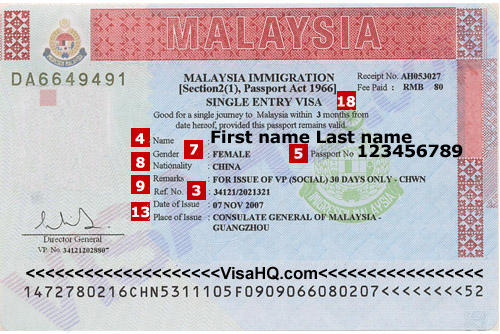
Foreign students are required to apply for a Visa Approval Letter (VAL) that allows them multiple entries into Malaysia for a maximum duration of 12 months and is renewable depending on the course/semester. As of June 2011, Malaysia has been reported to have over 90,000 foreign students with world ranking of 11th in terms of total international student population from around the world. The government aims to attract 200,000 international students by 2020 on the estimation that it will supposedly bring RM600 billion to our economy.
Where do they end up?
Last year The Star reported that unscrupulous Malaysian institutes of higher learning and education centres were working with human trafficking syndicates to bring in thousands of illegal Bangladeshi workers. These institutes even falsify attendance records and provide “progress reports” of the “students”.
The syndicates charge between RM10,000 and RM12,000 to bring a Bangladeshi in posing as a foreign student. They even have lecturers waiting at KLIA to produce necessary documents to certify that the “student” is coming to learn English. Once the worker leaves the airport, he is taken to a safe house somewhere in the Klang Valley before being sent to a factory in Selangor, Johor or Perak. There, the “student” works as a welder or labourer, earning wages of RM30 to RM60 per day depending on his skills.
Some times the foreigners are even conned into believing they’re coming over to study but were forced to do cheap labour instead. Last year, Tenaganita exposed (but never named) a local college that was duping foreign students with internship offers and guaranteed job placements upon graduation. They told The Star that the college in KL offered certificate programme in cruise management and charged around RM20,000 per student. Instead of having classes, students were sent to restaurants and hotels to work for 12 – 16 hours for “internship”.
“We arrived on Oct 9 because we were told earlier that classes would start the following day. However, no classes were held, we had to sleep in the lobby of the hostel for three days. The college later informed us that classes would only start one month later”. The students were then sent for an internship programme to a local restaurant. – Rojina Risal, Nepalese student.
Another Nepalese student, Sujan Tamrakar expressed concerns as his student visa was about to expire soon and he had yet to secure a job. He also showed the media brochures from the college advertising a diploma course in cruise management promising guaranteed job placement. When contacted by the media, a former academic director from the college defended the misleading information on the brochure, saying that “there were several versions of the brochure“.

4. Foreign Workers Agency
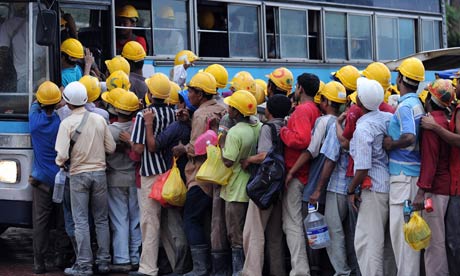
In order to bring in foreign labour into the country; the agency needs to have an Outsource License issued by the government. It allows the agency to bring in a certain amount of foreigners. The quota is set upon application and is renewable if you exceed the limit. These agents provide workers to factories, plantations, construction companies, and the likes.
If only you could get more friends this way. Not enough kakis to watch world cup? Import them!

Where do they end up?
They basically end up wherever the agency sends them to; factories, plantations, construction companies, cleaning companies etc. Here’s the part Abraham Lincoln might object to: the workers belong to the agency, and not the place of employment. So whatever wages they get, the agency has the opportunity to collect a small “handling fee”. There have been cases where the agents hold on to their passports as “ransom”, forcing the workers to be considered an illegal under the eyes of the law. We’re not 100% sure how many agencies are in Malaysia but a simple online search on a local directory revealed over a thousand agencies offering migrant workers.

This forced ransom under house arrest business plan seems to copy the success of numerous South Carolina businessmen in the 17th Century.
5. IMM13

The IMM13 (doesn’t seem to stand for anything, probably a spin off the IM4U) is a pass that allows Filipino and Indonesian refugees who enter via East Malaysia to roam about freely and seek employment. Why the special treatment? Well long story short, the Indonesians came over in the 60s’ when their governent violently opposed the formation of Malaysia (they wanted to keep Borneo), and the Pinoys came over during a major feud between the Muslims and Christians in the 70s’. It was reported that 73,000 Pinoys came over between 1970 – 1984.
A total of about 325,000 illegal immigrants were detected and documented through a census done between 1987 and 1992 according to Abdul Ja’afar Alip, former Head of Settlement Unit in the Sabah Chief Minister’s Department but The Malay Mail reported only 98,427 passes have been issued since 1999. The data and records on IMM13 and illegal immigrants have been a little suspicious (I think most of our gomen’s data are suspicious but of cos cannot proof lah!), which lead the government to create a Royal Commission of Inquiry (RCI) in 2012 to investigate this issue.
Where do they end up?
Majority of them end up working in East Malaysia, as construction workers in KK, restaurant helpers, shop assistants, domestic workers, and the more fortunate ones run small businesses catering to the growing tourism industry. The children of these folks start working at a young age because our government declared that immigrants who are undocumented cannot enter any government-funded schools. Those who can afford will send their kids back to the Philippines to study.
By denying education, those gomen pakciks and makciks created a huge pool of untapped human resources who most likely could have provided alternative services to country. This lead to a negative impact to the social and economic development of East Malaysia.
While IMM13 was supposed to control the entry of illegal immigrants, it has been misused as a money making scheme by certain authorities. These passes need to be renewed annually and the fees aren’t exactly fixed as some people are charged more based on what jobs they have, making these passes available for ‘purchase’. IMM13 holders that can’t afford to pay hefty sums end up not renewing it, adding to the illegal population. Surely having a large population of immigrants will impact the country some how, which leads us to…
5.5 Project IC
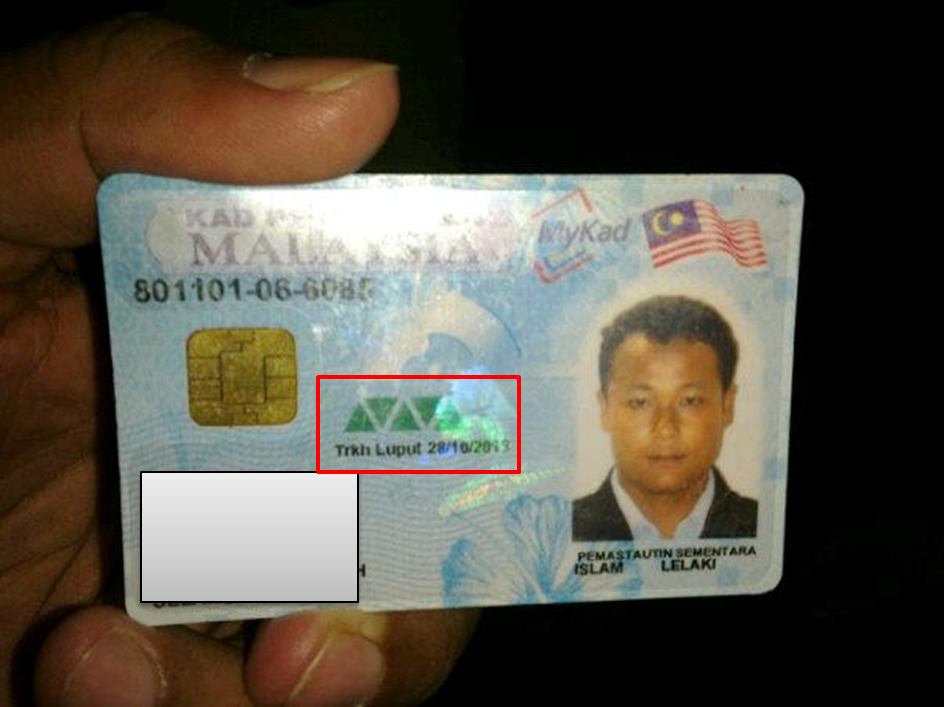
Why 5.5? Cos this category kinda overlaps on everything else here. Project IC is the name used to describe the allegation of citizenship given to immigrants in exchange for their votes, especially in East Malaysia where Sabah has been a stronghold for the ruling gomen, with majority of the votes coming from there. Immigrants were given temporary ICs with expiry dates in return for votes during state or general election. Some of these immigrants were later rewarded with a permanent MyKad. The last GE13 was racked with unverified reports of immigrants coming to Selangor to vote but some how the only official thing we can find is news about Immigration Department Director-General Datuk Alias Ahmad denying it.

Anwar Ibrahim accused the old Dr. M of creating this Project to which the former premier denied having any knowledge of this and claims “he did not remember giving any specific instructions but did advise Sabah Chief Minister to follow the law but often his instructions were misinterpreted by ministers and senior civil officers“. Waaaaaah… an answer North Korea will be proud of!
(Unfortunately our Kim Jong Un meme quota for this month has run out thanks to this article. Please come back mid July. – Editor)
The RCI were ordered to look into this Project and during their investigations in 2013, they found that former Sabah National Registration Department (NRD) Director Ramli Kamarudin sold 16,000 NRD receipts for more than RM1million. These receipts enabled immigrants in Sabah to vote. He goes on to say that former Deputy Home Minister, the late Tan Sri Megat Junid Megat Ayub, had ordered him to issue the receipts that match the names and IC numbers of registered voters, allowing immigrants to vote for the 1994 state elections.
Sarawak Special Branch Chief Datuk Haji Ibrahim Zakaria told the RCI that another former Sabah NRD Director Datuk Abdul Rauf Sani had sold 6,305 identity cards to Filipino and Indonesian immigrants. 94 people, including 24 NRD officials, were arrested under the ISA from 1994 to 2000 for issuing identity cards in Sabah.
The Malay Mail reported that the RCI has just completed its investigations and a full report has been given to the Agong and the PM in May for “their kind attention”. Now we’ll just have to wait for it to be made public.
So, what are we doing?
Well the authorities have been doing their favourite past time… raiding and detaining lor (same hobby as their cousins, the JJJJJs). Just Google the phrase “Malaysia illegal immigrants raid” and you’ll see a whole list of news coverage. In fact the Ops Bersepadu 6P that was launched in January is still underway. But is this the best solution? This seems more like an end-of-the-line kindda quick fix when the issue is at the beginning when they cross the border. Home Minister Ahmad Zahid Hamidi said that all illegal immigrants’ biometrics will be recorded before deporting them to prevent them from coming back under a different identity. He also said that all migrant workers are required to apply for an I-Card, the MyKad version for them.
While we agree that’s better than not doing anything but what else can the government do? Would you agree that our immigration enforcement needs a lil bucking up? Is corruption the main culprit here? Human trafficking syndicates charge between RM10,000 and RM12,000 per immigrant but how much of that goes to the authorities? We may not have evidence of this but aiyah you-know I-know lah. In the US’s 2014 Trafficking in Persons Report, they suggested a few things that Malaysia could do to fix this issue, although it’s quite ironic as the US themselves have been battling this war for the longest time. Feel free to read the entire report here but we’ll summarise for you lazy buggers:
- Amend the anti-trafficking law and government regulations.
- Improve victim identification efforts, including by implementing procedures to identify labor trafficking victims (basically to identify who got conned into coming here and who willingly panjat pagar).
- Offer legal alternatives to removal to countries in which victims would face retribution or hardship (don’t just ship them off some where for the sake of getting them out).
- Enforce the law that prohibits employers from confiscating passports.
- Apply stringent criminal penalties to those involved in fraudulent labor recruitment or forced labor.
- Increase efforts to investigate, prosecute, and punish public officials who may profit from trafficking or who exploit victims (Malaysia has better chances of hosting the World Cup before this happens).
I’ll admit, blaming the gomen is easy (and fun) but we the Rakyat are also at fault. We live in a country where no one wants to get their hands dirty. So we hire dirty hands from somewhere else.
“We have become a nation that is too dependent on foreign workers, especially in our services industry. For example, we are too dependent on maids from Indonesia and it’s the same with our plantation sector“. – Malaysian Trades Union Congress Deputy President Mohd. Jafar Abdul Majid
If we are getting them to do stuff we don’t want to do ourselves, the least we can do is show them some compassion and respect as human beings. We’re not asking you to buy them a house, just the basic please-thank you’s, a smile or better still, a tip. They are after all someone’s mother, husband, or son who had to find work here in search for a better life.
And of course, if you know of any abuse cases or workers having their passports confiscated, you can lodge an anonymous report with NGOs like Tenaganita and the Women’s Aid Organisation (WAO).

- 331Shares
- Facebook321
- Twitter1
- LinkedIn2
- Email2
- WhatsApp2


